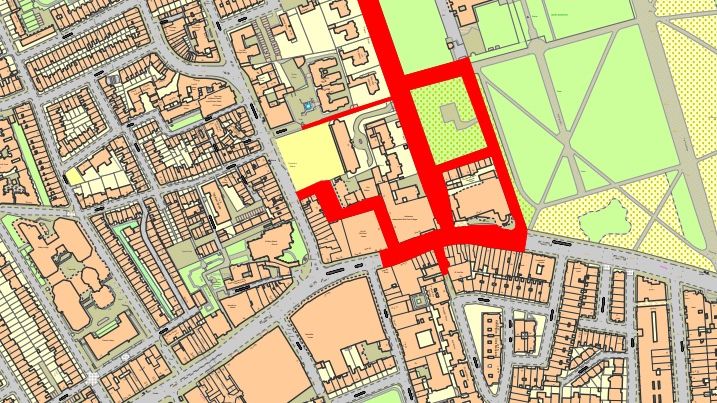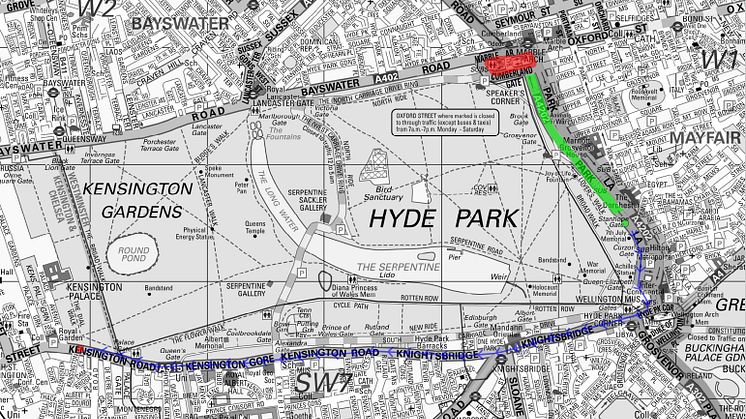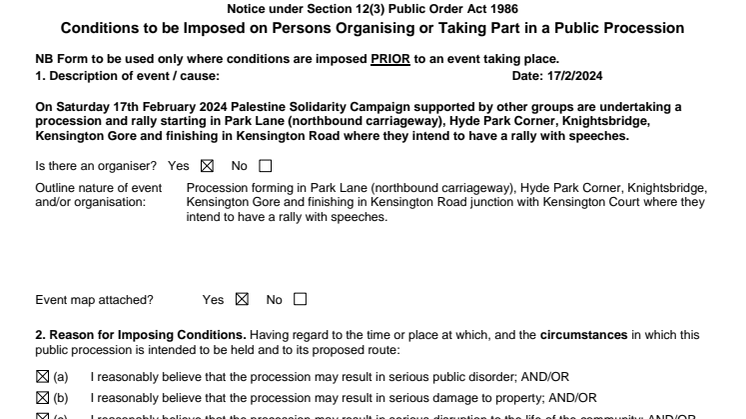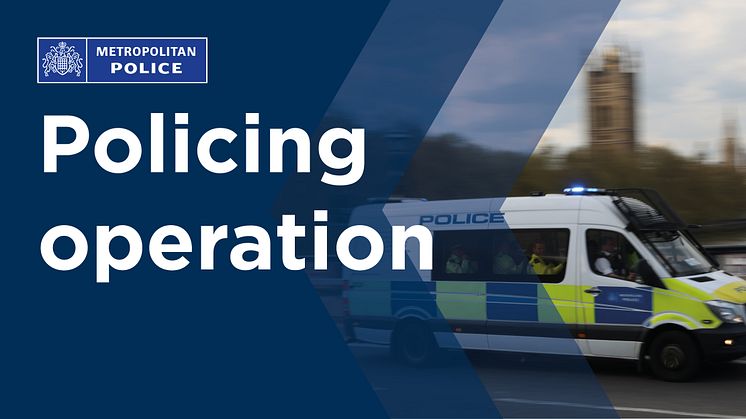
News -
Met confirms details of protest policing operation
Officers will be on duty in significant numbers in central London tomorrow to ensure a protest march organised by the Palestine Solidarity Campaign and other groups takes place without incident.
This is the latest in a series of large protests that have taken place since the terrorist attacks in Israel on October 7 and the start of the subsequent military action in Gaza.
The march will form up south of Marble Arch on the northbound carriageway of Park Lane, setting off at 13:30hrs along Park Lane, then along Knightsbridge and Kensington Road ending at the junction with Kensington Court where speeches will take place. These speeches must conclude by 17:00hrs, with protesters dispersing by 18:00hrs.
Around 1,500 officers will be on public order duties in London tomorrow, policing this march as well as other events, including football matches. As on previous weekends, many of those officers will be from other police forces across the UK.
Commander Kyle Gordon, who will lead the policing operation this weekend, said: “The conflict in the Middle East continues to have a profound and polarising impact here in London.
“Since the attacks in Israel on October 7, many in our Jewish and Muslim communities have been fearful and uncertain about their safety. Recent figures published on hate crime across both these communities reminds us why we must continue to take such concerns seriously.
“There are also many people who feel very strongly about the continuing military action in Gaza and wish to make those views known through protest.
“Our role as the police is not to take a stance on the merits of that position, nor is it for us to specifically dictate how people express their views, providing they are doing so within the law.
“We are there to ensure protests take place lawfully, minimising disruption to the life of the wider public and in a way that gives due consideration to the cumulative impact on London’s communities and those who feel most vulnerable in the current climate.
“The protests we have seen since October have thankfully been largely peaceful and we must take this into account in our policing approach. I hope the same will be true this Saturday.
“Unfortunately, despite this, we have regularly seen officers having to deal with offences related to placards and other hate speech. We do not underestimate the fear this causes, nor the impact of such criminal and unacceptable behaviour on wider community relations.
“I would appeal to all those attending the protest on Saturday to act within the law and to consider the impact of their actions on the safety and security of others. We will not hesitate to take action against those who fail to do so.”
This is the first time since a static rally on 9 October that protest organisers have decided to hold a demonstration in the vicinity of the Israeli Embassy.
We know there will be some who ask why that is allowed or how that decision was reached.
It is a common misconception that the police can grant or refuse permission for protests to take place which is not the case.
There are very specific circumstances when an application can be made to the Home Secretary for a protest to be banned but there would need to be a real risk of serious disorder that is beyond the capacity of the police to control. This is not something that has been seen at any of these recent protests or that is expected this weekend.
Many people also assume that the police set the route of a protest but this is also not the case. While there will ideally be discussions between officers and organisers ahead of any route being confirmed, it is for the organisers, not the officers, to plan and ultimately decide where a protest will take place.
While they don’t plan the route, senior commanders do have the ability to impose legal conditions on it, or on any related assemblies, in order to prevent serious disruption or disorder. This option has been used consistently for protests in recent months.
On Saturday, even though the protest will go closer to the embassy than it has previously, the same exclusion zone that has been in place since mid-October will apply. Participants in the protest will be kept more than 100m away from the embassy grounds, behind barriers controlled by officers. They will not be permitted to enter the area marked in red on the map below and anyone doing so faces arrest.
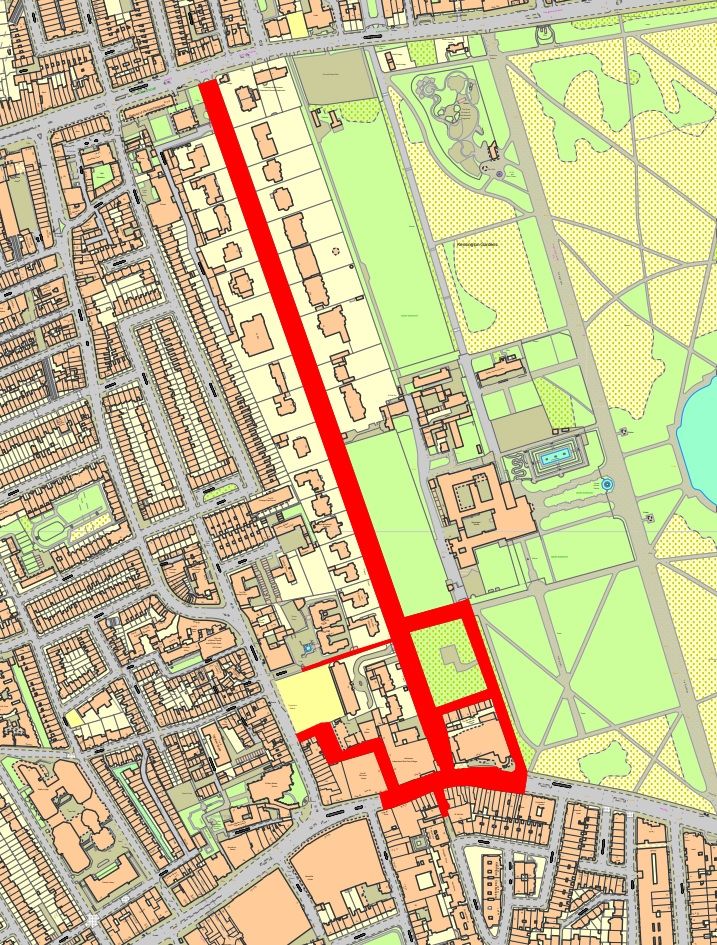
Precautions have also been taken to ensure the presence of protesters does not unnecessarily disrupt other sensitive premises, including synagogues, either near the form up point or along the route.
Officers have been in touch throughout the week with rabbis and other members of the Jewish community to provide reassurance and details of our policing plan. They have also engaged with the business community, with local authority partners and with others to ensure disruption to life in London is kept to a minimum.
Policing approach
The approach officers will take this weekend will be similar to that taken at all the larger protests since October 2023.
There will be a visible police presence at the forming up point and along the route. Officers will be paying particular attention to sites in the area where further reassurance is required.
Road closures will be in place for the safety of those taking part. Any closures will be lifted as soon as it is safe to do so, minimising the impact on the wider public.
In addition to the condition in relation to the area around the embassy set out above, we have put conditions in place under Section 12 of the Public Order Act meaning that any person participating in the march must not deviate from the route specified on the map below.
We have also said that no gazebos or other stalls can be erected in the area marked in red at Marble Arch.
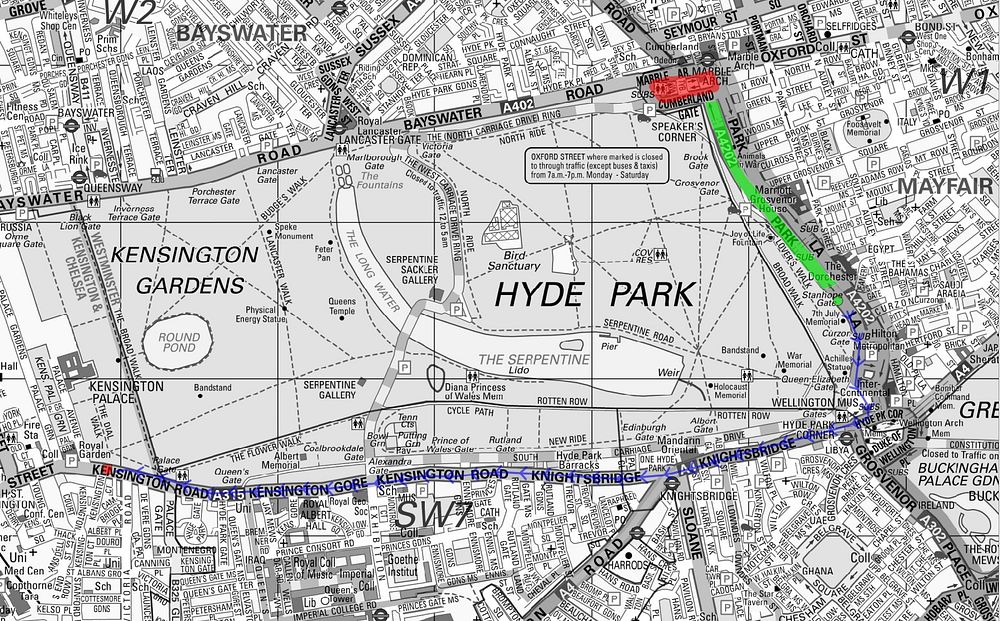
The use of further police powers, such as dispersal orders or powers relating to searching, will be kept under review. Any decision to use them will be proactively communicated on the Met’s X/Twitter account.
In the event of any criminal activity during Saturday’s protest, the public can expect to see robust intervention.
All officers will be briefed to be on the lookout for offensive placards and banners. In addition we will have teams in our operations room monitoring CCTV to identify other offences or to locate suspects in the crowd.
Where they are identified, we will use trained teams to intervene and remove them so that appropriate action can be taken.
Officers will also have facial recognition technology available, enabling them to compare CCTV stills or images shared on social media against a database of images held on the police custody system, potentially speeding up the investigation.
Despite the best efforts of officers, the volume of people at these larger protests means it may not always be possible to locate and arrest a suspect on the day.
In these circumstances we will use other means at our disposal, including public appeals, to continue investigations and to identify those suspected of committing offences.
A full copy of the conditions imposed for tomorrow's protest, including all relevant legislation and maps, is available online.
